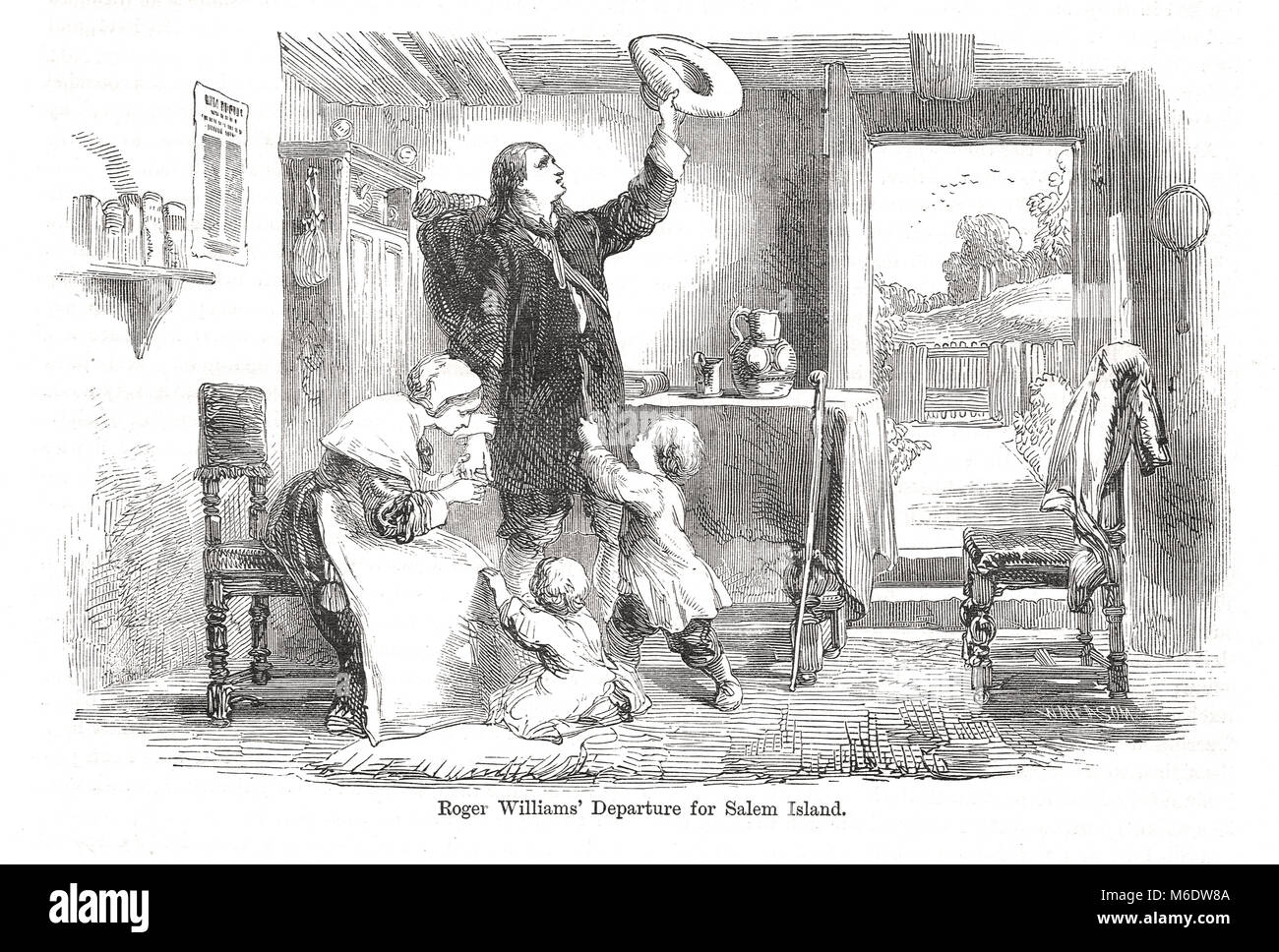Roger Williams departing for Salem, 1633

Image details
Contributor:
Historical Images Archive / Alamy Stock PhotoImage ID:
M6DW8AFile size:
30 MB (2 MB Compressed download)Releases:
Model - no | Property - noDo I need a release?Dimensions:
3937 x 2661 px | 33.3 x 22.5 cm | 13.1 x 8.9 inches | 300dpiDate taken:
1896More information:
This image could have imperfections as it’s either historical or reportage.
Illustration from Cassell's illustrated history of England published circa 1896. Info from wiki: Roger Williams (c. 21 December 1603 – between 27 January and 15 March 1683)[1] was a Puritan minister, English Reformed theologian, and Reformed Baptist who founded the Colony of Rhode Island and Providence Plantations. He was a staunch advocate for religious freedom, separation of church and state, and fair dealings with American Indians, and he was one of the first abolitionists.[2][3] Williams was expelled by the Puritan leaders from the Massachusetts Bay Colony for spreading "new and dangerous ideas", and he began settling the Providence Plantations as a refuge offering what he called "liberty of conscience" in 1636. In 1638, he founded the First Baptist Church in America, also known as the First Baptist Church of Providence.[4][5] He was a student of Native American languages, and he organized the first attempt to prohibit slavery in any of the British American colonies. Williams' legacy has grown over time with changing values. His defense of Native Americans, accusations that Puritans had reproduced the "evils" of the Anglican Church, and denial that the king had authority to grant charters for colonies put him at the center of nearly every political debate during his life. By the time of American independence, however, he was considered a defender of religious freedom and has continued to be praised by generations of historians who have often altered their interpretation of his period as a whole.